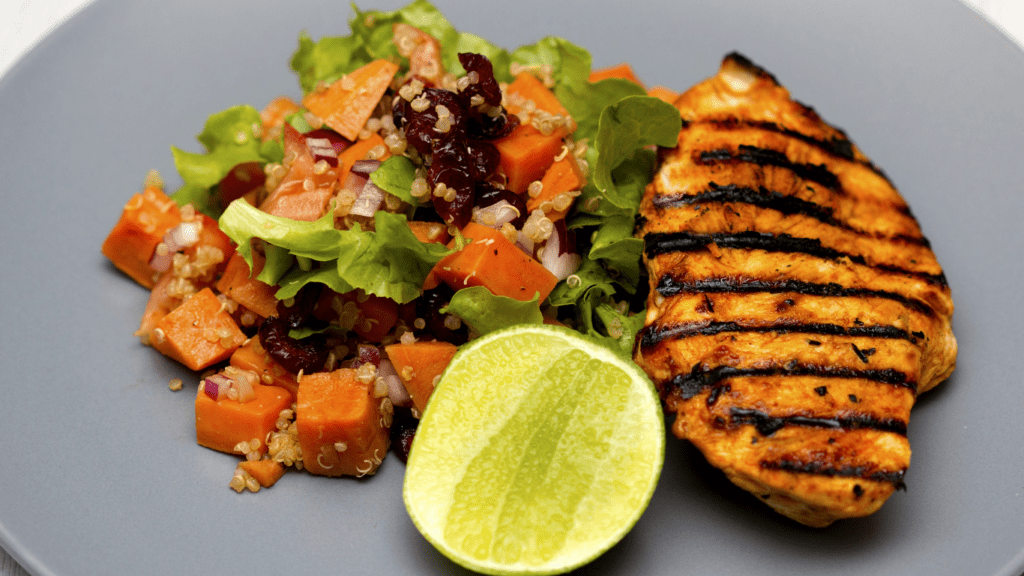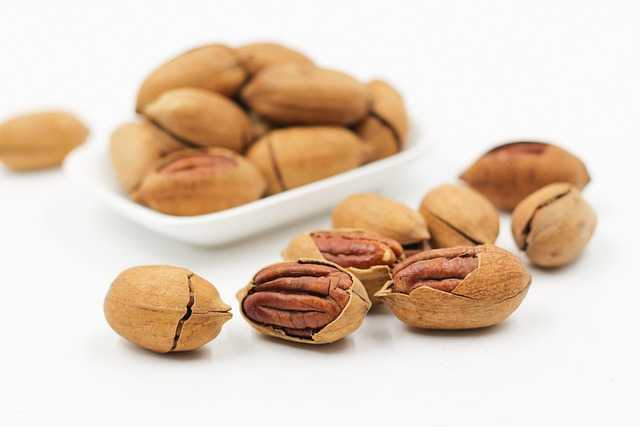Understanding Nutritional Needs of Cyclists
Cyclists require tailored nutrition to meet their high energy demands and enhance performance. Focusing on specific dietary components helps in achieving these goals.
The Importance of a Balanced Diet
A balanced diet integrates macronutrients and micronutrients. Cyclists need carbohydrates, proteins, and fats to fuel and recover. Carbohydrates serve as the primary energy source, especially during intense rides.
Foods like:
- whole grains
- fruits,
- vegetables
Provide these necessary carbs. Proteins repair muscles; lean meats, legumes, and dairy products offer quality protein.
Fats supply sustained energy. Sources include:
- nuts
- seeds
- avocados
Micronutrients like iron and calcium are crucial. Iron aids oxygen transport, while calcium maintains bone health. Eating varied foods ensures cyclists meet these nutritional needs.
Hydration: The Role of Fluids in Cycling
Hydration is essential to maintain performance.
- Dehydration impairs physical functions and increases fatigue. Cyclists should drink water before, during, and after riding.
- Electrolyte solutions support longer rides by replenishing lost minerals like sodium and potassium. During intense sessions or hot weather, the body’s fluid requirements increase.
- Monitoring urine color helps gauge hydration levels; pale yellow indicates proper hydration. Cyclists eating watery fruits such as watermelon can supplement their fluid intake.
Common Nutritional Mistakes Cyclists Make
Cyclists often overlook critical aspects of their nutrition, which can significantly impact performance and recovery.
Skipping Meals Before a Ride
Skipping meals before a ride deprives the body of essential energy. Cyclists need adequate glycogen stores to sustain extended physical efforts.
For example, eating a balanced breakfast with oatmeal, fruits, and nuts can provide the necessary carbohydrates, fiber, and healthy fats. Inadequate pre-ride nutrition leads to fatigue and decreased endurance.
Relying Solely on Sports Products
While sports products, such as gels and bars, offer quick energy and electrolytes, they shouldn’t replace whole foods. Cyclists benefit from a diet rich in fruits, vegetables, and lean proteins.
For instance, bananas and almonds can complement sports products by providing natural carbohydrates and protein, supporting overall health and performance. Depending on processed items can cause digestive issues and nutrient imbalances.
Poor Timing of Nutrient Intake
Proper timing of nutrient intake influences recovery and performance. Cyclists should consume protein and carbohydrates within 30 minutes after a ride to replenish glycogen and repair muscles.
Examples include a protein shake or a turkey sandwich. Delayed nutrient intake impairs muscle recovery and reduces performance in subsequent rides. Adjusting nutrient timing ensures optimal recovery and sustained energy levels.
Practical Tips to Optimize Nutrition for Cycling
Focusing on nutrition assists cyclists in maximizing performance and maintaining energy levels. Addressing both meal planning and variety ensures a well-rounded diet.
Planning Meals and Snacks for Longer Rides
Pre-ride meals should contain complex carbohydrates and lean protein for sustained energy. I recommend whole grains, like oats or quinoa, paired with vegetables or a lean protein source, such as chicken or tofu.
During rides longer than 90 minutes, consume easily digestible carbs to maintain energy. Bring along bananas, energy gels, or sports drinks to replenish glycogen stores without weighing down your stomach.
Avoid heavy, fatty foods that can cause gastrointestinal distress during intense activity.
Post-ride nutrition is crucial for recovery. Within 30 minutes after finishing, consume a balanced meal with protein and carbohydrates, such as a turkey sandwich with whole grain bread or a protein smoothie with fruit and yogurt.
This timing helps replenish glycogen and repair muscle tissue effectively.
Incorporating Variety and Balance
Maintain dietary variety to cover all nutrient bases. Include a mix of fruits and vegetables, whole grains, and diverse protein sources in your regular intake. For instance, switch between protein sources like fish, legumes, and dairy to avoid nutritional gaps.
Balance macronutrients to support overall health and performance. Aim for 50-60% of your calories from carbohydrates, 15-20% from protein, and the remainder from fats.
Quality is key—prefer complex carbs over refined ones, and prioritize healthy fats from nuts, seeds, and avocados.
Incorporate micronutrient-rich foods to avoid deficiencies. For example, add leafy greens for iron and calcium, and nuts or seeds for magnesium.
Monitoring and adjusting dietary intake ensures you cover all essential vitamins and minerals necessary for peak cycling performance.
Specific Nutrient Considerations for Cyclists

Cyclists have unique nutritional needs to support intense training and performance. Balancing macronutrients and ensuring sufficient micronutrient intake is crucial.
Carbohydrates, Proteins, and Fats
Carbohydrates act as the primary energy source during rides.
- Consuming 6-10 grams of carbs per kilogram of body weight daily fuels endurance. Foods like oats, bananas, and whole grains provide easily digestible carbs.
- Proteins aid in muscle repair and recovery after long rides. Aim for 1.2-1.7 grams of protein per kilogram of body weight. Include lean meats, beans, and dairy products in your diet.
- Fats provide a sustained energy source. Healthy fats like those in avocados, nuts, and olive oil should make up 20-35% of your total caloric intake.
Key Vitamins and Minerals
Iron supports oxygen transport in the blood. Include iron-rich foods such as spinach, red meat, and fortified cereals to prevent fatigue.
Calcium is essential for bone health. Dairy products, leafy greens, and fortified plant milks are excellent calcium sources.
Magnesium aids in muscle function and energy production. Nuts, seeds, and whole grains are rich in magnesium.
Vitamin D enhances calcium absorption. Spend time in the sun and consume fatty fish or fortified foods to meet vitamin D needs.

 Hello, I'm Henry Kirkland, and I’m proud to be part of the Cycle Smooth Ride Long team. Cycling is more than just a sport for me—it’s a way of life. I’m here to share my passion and expertise with you, helping you navigate the world of cycling with confidence and joy.
Whether you’re a beginner looking to get started or a seasoned rider aiming to refine your skills, my goal is to provide you with the insights, tips, and guidance you need to make the most of your cycling journey. At Cycle Smooth Ride Long, we’re dedicated to creating a community where cyclists of all levels can connect, learn, and grow together.
Hello, I'm Henry Kirkland, and I’m proud to be part of the Cycle Smooth Ride Long team. Cycling is more than just a sport for me—it’s a way of life. I’m here to share my passion and expertise with you, helping you navigate the world of cycling with confidence and joy.
Whether you’re a beginner looking to get started or a seasoned rider aiming to refine your skills, my goal is to provide you with the insights, tips, and guidance you need to make the most of your cycling journey. At Cycle Smooth Ride Long, we’re dedicated to creating a community where cyclists of all levels can connect, learn, and grow together.
